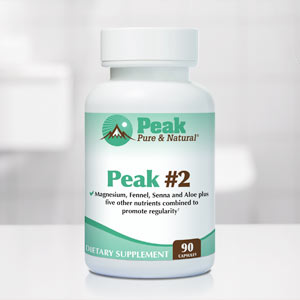I’ve suffered from irritable bowel syndrome (IBS) for years, and the only thing that has helped to some degree is adopting a low FODMAP diet.
FODMAP is an acronym for fermentable oligo-di-monosaccharides and polyols. A low FODMAP diet involves decreasing the consumption of FODMAP foods, which can linger in the gut where they ferment and cause the uncomfortable and unpleasant symptoms of IBS.
Foods to avoid include:
- High fructose corn syrup
- Dairy items that are high in lactose like milk, ice cream, buttermilk and sour cream
- Grains that contain gluten like wheat, barley and rye
- Certain fruits like apples, mangoes, peaches, pears, plums and watermelon
- Some vegetables like artichokes, cauliflower, mushrooms and sugar snap peas
- Beans and lentils
The low FODMAP diet was confirmed to work better than medication, but I do get frustrated with how limiting. So I was excited to read about a Swedish study indicating there may be a much simpler way to manage IBS…
A genetic link to sugar and starch
Bodil Ohlsson, a professor at Lund University, has been investigating the role of sugars and starches in IBS. Her choice is linked to a geneticist’s discovery that more IBS patients tend to have a genetic variation that hinders the breakdown of sugars and starches in the gut.
“‘Let’s try giving these patients less sugar and starch,’ we thought,” Ohlsson says.
A few years ago, she led a study in which 105 people with IBS ate significantly less sugar and starch for four weeks. This diet, known as the starch and sucrose-reduced diet (SSRD), called for avoiding sweets and highly processed foods, including ready-to-eat meals.
The results showed that SSRD greatly reduced IBS symptoms such as recurring pain and tightness in the abdomen and diarrhea and/or constipation.
A more recent study compares SSRD to the FODMAP diet, which is a stricter, more regulated diet than SSRD. The study involved 155 IBS patients who were randomly assigned to follow either SSRD or the low FODMAP diet for four weeks. Before the trial, they were not allowed to have been on any specific diet.
Participants in both groups had to follow the basic principles of each diet; however, they chose how often or regularly they ate.
Results showed that in both groups, regardless of diet, IBS symptoms improved in 75 to 80 percent of the patients. This was even better than the researchers had expected.
A nice bonus was that in the SSRD group, not only did sugar cravings decrease the most, but weight loss was greater. This is positive because IBS patients tend to weigh more on average than healthy people, Ohlsson says.
“We wouldn’t really even call SSRD a diet,” she says. “It’s how everyone should eat, not just those with IBS. And unlike low FODMAP, SSRD is easy to understand and easier to follow.”
Ohlsson adds that on SSRD, it’s not necessary to be super-strict at all times. “You can eat everything when you are invited to dinner, just less of certain things,” she says. “If you rest your stomach for the rest of the week, you can indulge a little one day!”
One less thing to stress about
Because stress can be an IBS trigger, having one less thing to stress about, like a super strict diet, is a huge plus.
But omitting sugar and starch is another way that less stress is also built into the SSRD…
That’s because when we eat sugar, our blood glucose rises. The more sugar (or starchy foods) you eat, the faster it rises. This kickstarts the adrenal glands to start pumping out cortisol, the stress hormone.
When our cortisol levels are raised often and for prolonged periods, the adrenal glands can malfunction and begin producing insufficient levels of cortisol, which can be just as problematic.
To help balance cortisol, in addition to avoiding sugar and starch, it’s a good idea to include stress and anxiety-reducing practices as part of your self-care routine.
Sources:
Cutting out sugar and starch is as effective for IBS as current recommendations — EurekAlert!
A Starch- and Sucrose-Reduced Diet Has Similar Efficiency as Low FODMAP in IBS—A Randomized Non-Inferiority Study — Nutients
Digestive symptoms in daily life of chronic adrenal insufficiency patients are similar to irritable bowel syndrome symptoms— PubMed Central®
Read full article here




